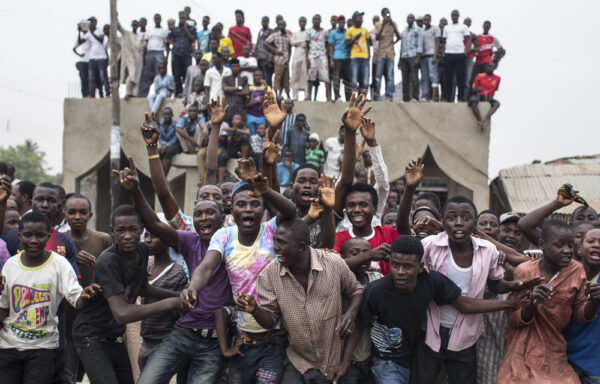Not Too Young To Run: From Legal Breakthrough to Political Reality — The Road to 2027

President Bola Tinubu’s government set to hold a national youth confab.
By Eja Manifest Eji
In 2018, a wave of hope swept through Nigeria’s youth as President Muhammadu Buhari signed into law the “Not Too Young To Run” bill—an unprecedented constitutional amendment that lowered the age requirement for elective offices. At its heart, the bill sought to democratize access to political leadership by recognizing that youth is not a barrier to competence, vision, or public service.
This historic reform came after years of youth-led advocacy, most notably by the YIAGA Africa movement, and it represented a significant shift in Nigeria’s democratic culture. For the first time, millions of young Nigerians saw themselves not just as voters or foot soldiers in political campaigns, but as viable candidates for the highest offices in the land.
Yet, as the 2023 general elections have shown, legal reforms, while necessary, are not sufficient. The journey from legislative success to practical political inclusion remains fraught with systemic challenges. As we look toward the 2027 elections, it is imperative to reflect on the hurdles encountered, the lessons learned, and the reforms needed to bridge the gap between policy and practice.
The 2023 Reality Check
According to data from the Independent National Electoral Commission (INEC), over 37% of Nigeria’s registered voters in 2023 were youth. However, this demographic strength did not translate into political representation. Of the 15,336 candidates who contested various offices, only 1,899 were aged between 25 and 30—a steep decline from 2019, when youth made up about 34% of the candidate pool.
So, what went wrong?
First, the cost of politics in Nigeria remains prohibitively high. From the exorbitant price of nomination forms to the enormous campaign expenditures required to secure visibility and support, young aspirants are often priced out before they even get started. The monetization of internal party politics further compounds the problem, as party tickets are frequently awarded based not on merit, but on financial influence and political godfatherism.
Second, Nigeria’s political parties continue to operate with opaque structures and undemocratic processes. Despite the enthusiasm of youth for participation, many parties failed to create inclusive mechanisms that give young members a fair shot at candidacy. Where primaries were held, they were often marred by irregularities, leaving many young aspirants disillusioned and sidelined.
Still, there were bright spots. In the 2023 elections, two individuals under the age of 29 won National Assembly seats. Four young women under 35 were elected into state assemblies across Delta, Lagos, and Kwara States. These victories, though few, are symbolic of the potential and promise of the Not Too Young To Run movement.
Lessons for 2027
The 2023 elections offer important lessons for stakeholders interested in consolidating Nigeria’s democratic gains and empowering a new generation of leaders.
- Financial Inclusion Must Be a Priority
Political parties must drastically reduce or waive nomination fees for young aspirants. State support or donor-sponsored youth empowerment funds can also be created to help offset the costs of running for office. - Internal Party Democracy Must Improve
Transparent and inclusive primary elections are essential. Young members must be integrated into decision-making bodies within political parties, not relegated to youth wings with limited influence. - Political Education Is Crucial
Young Nigerians need sustained civic and political education. Understanding the political system, their rights, and effective strategies for political engagement will empower them to participate more meaningfully. - Institutionalize Youth Representation
The inclusion of youth quotas within party constitutions and national policies can ensure that young people are not just candidates, but decision-makers in Nigeria’s political future.
The Way Forward
The promise of the Not Too Young To Run Act must not be allowed to fade into symbolism. For the Act to achieve its intended impact, it must be complemented by structural reforms, financial accessibility, and genuine political will. This calls for action from every stakeholder—political parties, civil society, the private sector, and the youth themselves.
As 2027 approaches, young Nigerians must not retreat in disappointment but retool with resolve. The movement must evolve from demanding access to building strategic alliances, engaging communities, and demonstrating leadership capacity from the grassroots up.
Our democracy will remain incomplete if it fails to reflect the aspirations and energy of its largest demographic. The future of Nigeria belongs to the youth—not just in theory, but in elected office, in leadership, and in governance. The time to prepare for 2027 is now.
READ ALSO:
- CrispNG’s maiden lecture: Older generation using youths as pawns – Busaosowo Bisong
- CrispNG’s maiden lecture: Current Nigerian youths fear death, not bold enough for change – Ambrose Igboke
- CrispNG’s maiden lecture: How to solve Nigeria’s trust problem — Solomon Dalung

